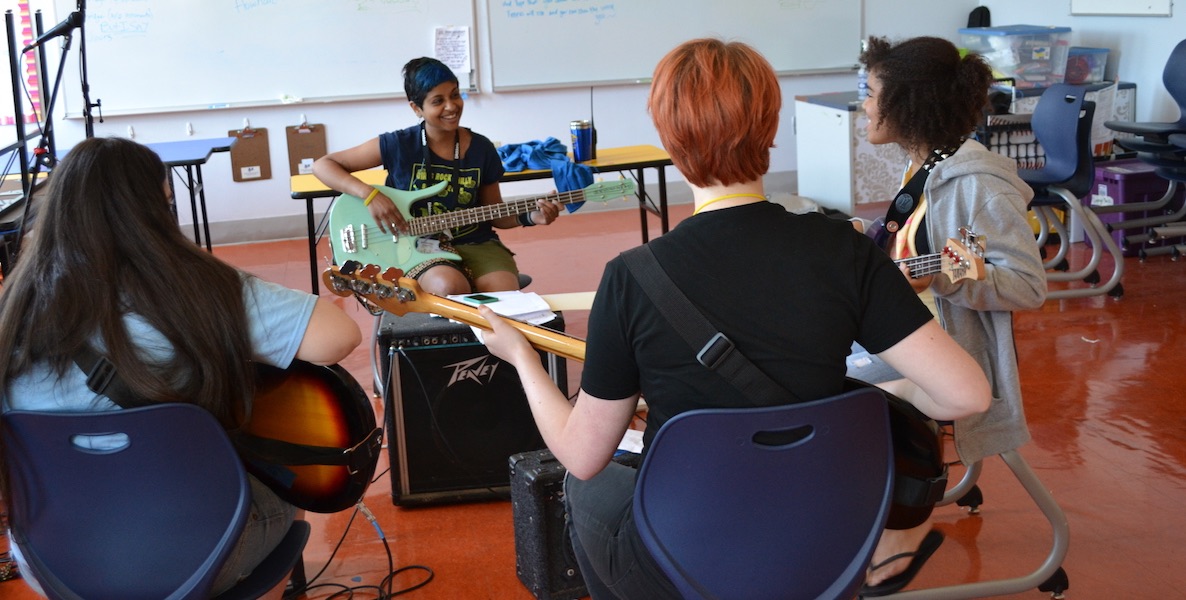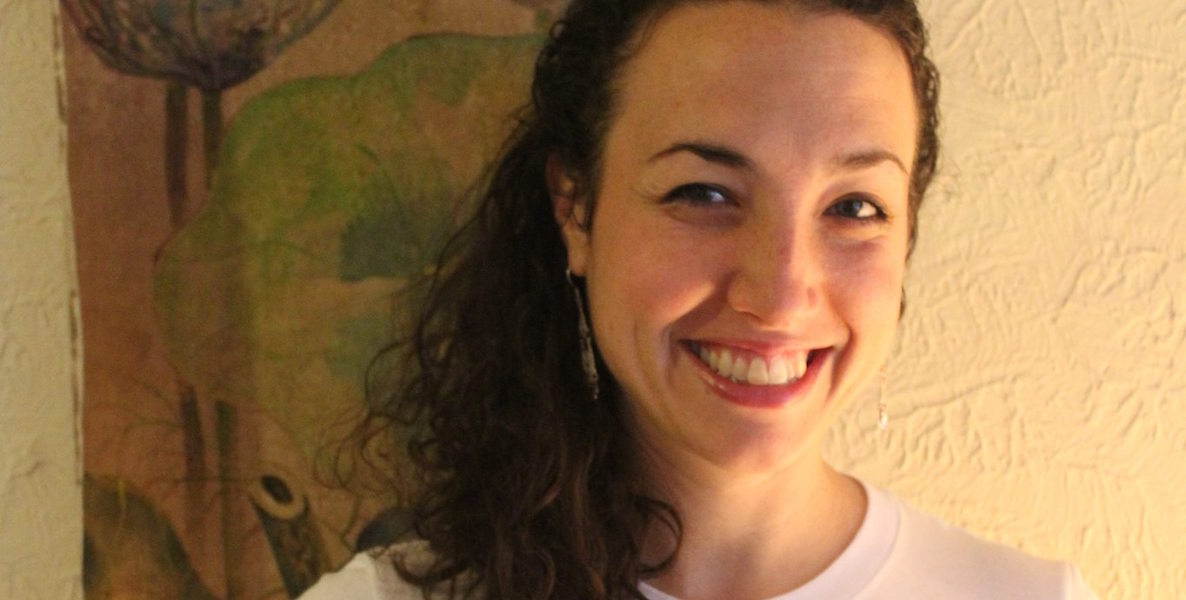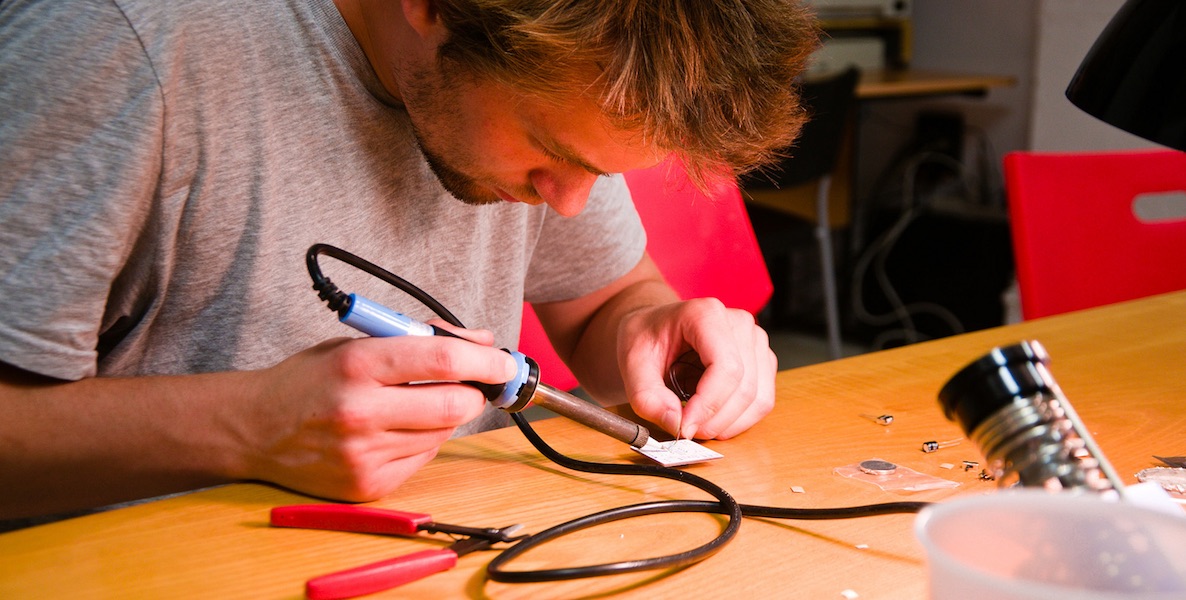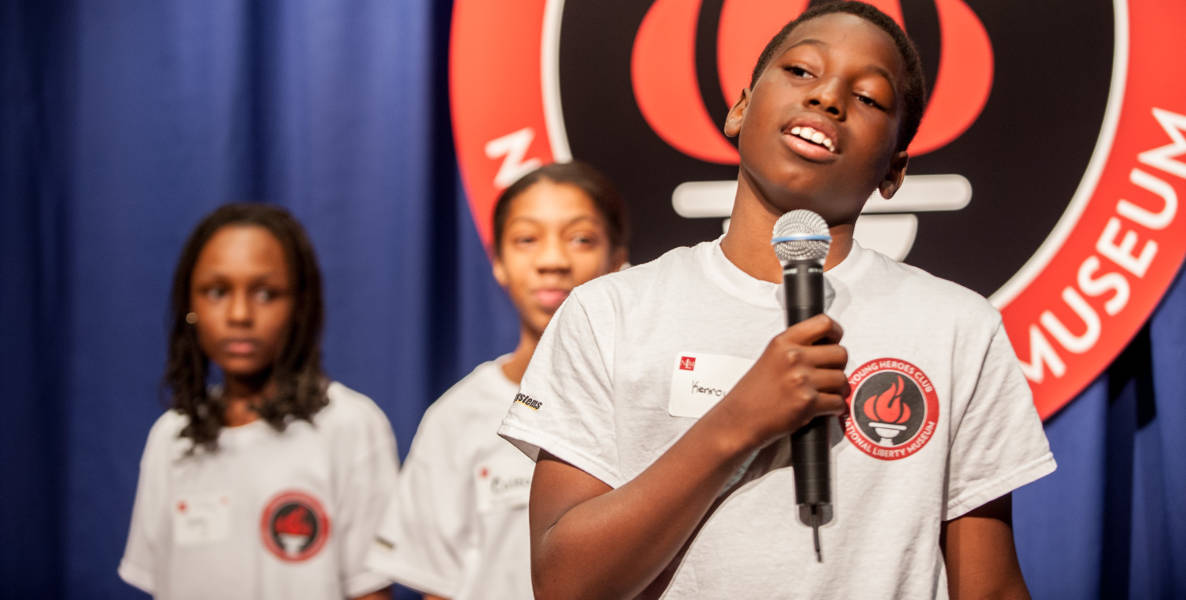“As a girl in a dress, the assumption is you’re there to service the band,” writes rock critic Lizzy Goodman. You know what she means. When it comes to rock and roll, woman musicians are often still considered anomalies: Out of Spin’s current “50 Best Rock Bands Right Now,” only 16 had women members (and of these 16, most had only a single woman). Closer to home, for the dates March 9-March 31, Johnny Brenda’s will host 29 live acts, just five of which contain women artists.
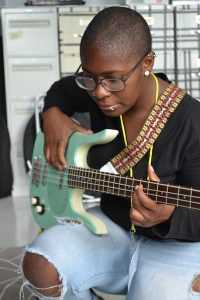
Enter Girls Rock Philly, an innovative program for pre-teen and teenaged girls and all youth who are female/non-binary-identified that uses music education summer camps and afterschool programs not only to create pathways into the music industry, but also to encourage leadership, creativity, critical thinking and collaboration in all areas of their lives. (GRP currently describes its participants as girls, but is considering changing its name to be more inclusive.) Through music, Girls Rock Philly seeks to fight against the self-doubt and low self-worth that many young girls face.
“This camp isn’t about identifying a defect in girls and fixing it,” says GRP Program Director Diane Foglizzo. “We want to live in a different world than we do now, and we think that by creating a space for young people to come together around music, we can support them to change those things.”
Girls Rock Philly began in 2006 out of a nationwide movement to create more music mentorship and empowerment programs for young girls across the United States. Girls rock camps were popping up in other cities, like Washington DC, where Foglizzo lived. “As educators, activists and organizers, musicians and community workers, we wanted to create an intentional space for girls to express themselves, make new friends and build community,” says Foglizzo, who was also part of starting the Girls Rock Camp Alliance, an international alliance of 60 girls rock camps all over the world.
Meanwhile, another member of this movement—WXPN radio producer and Penn professor Beth Warshaw-Duncan—brought the first one-week Girls Rock summer program to Philly in summer 2007 with 20 campers. The girls chose an instrument, formed a band with other campers they’d never met before and over the course of the week wrote an original song. The program culminated in a final performance in which each band performed their creations for a live audience.
“For many of them, they’ve never had much experience with an instrument, and to be immersed in it and come out with something as concrete as a song, it’s really incredible,” says Andrea Jácome, GRP creative director.
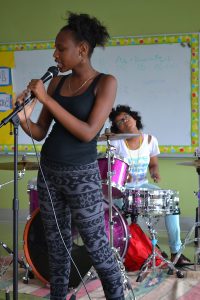
Now Girls Rock Philly serves over 140 girls a year, offering a sliding scale tuition from $50 (or even a free scholarship) to $400, depending on income, and their final showcases are held at rock venues like Union Transfer and The Troc. (Girls Rock Philly is accepting applications for the upcoming summer until May.) In an action-packed seven days, the campers get lessons on the instrument they’ve chosen—drums, bass, keys, guitar, or DJ crew— and attend 10 empowerment workshops around the year’s theme.
In 2015, for example, the theme of the camp was #youthrising. So each day campers studied different youth activists that were inspiring and contributed to social change in Philadelphia or beyond. The workshops, all taught by volunteers, were on topics like learning how to use loop pedal, self defense, consent or analyzing a Janelle Monáe video for what it can teach us about race and class. Jácome says the workshops are held together by common themes of social justice, what it means to be a girl or female-identified person in the world, and creative expression.
This starts from the first assembly of every day, in which GRP campers make a group agreement about how they wish to treat each other and the type of community space they want to create. Staff members encourage the girls to create their own rules for camp rather than imposing pre-established ones.
“We’re creating a space where we’re not dictating what to do. Instead of saying, ‘Do this!’ we ask ‘What would make you feel good?’,” Jácome says. “Instead of saying, ‘Don’t be mean,’ we’re saying ‘What would you want to see in an ideal space?’”
In addition to this signature program, Girls Rock Philly offers several other opportunities to connect with fellow musicians and hone musical skills, including a Summer Music Institute—five weeks of intensive music education that also offers a feminist framework and field trips around Philadelphia; an after school program in their Fishtown headquarters; a resource library on music and feminism; rehearsal rooms; group and private music lessons; and a gear loan program for practice at home. There’s even a Ladies Rock Camp, which offers the same experience to women and gender nonconforming folks 19 and above over the course of two intensive weekends per year.
“It was one of the best things I did in Philly,” says Sophie Hwang, an LRC camper in the DJ crew. “Such a great space to meet other adventurous, like-minded women folk.”
Hwang says there was a spirit of collaboration and community that prevailed over the course of the weekend that is rare to find in adult artistic spaces. Through a combination of group lessons and individual work, she learned how to spin and create a set list, and that it was OK to make mistakes. Hwang underscores that some bands formed that weekend have continued performing together, even booking gigs at venues like LAVA Space, and that Girls Rock Philly gave her the opportunity to perform again at a festival in Kensington.
Enroll in Girls Rock Philly CampDo Something
There is something about music that makes the world GRP wants to create seem possible—perhaps its universal appeal, perhaps the way it prompts the players and the listeners to move and listen to their bodies.
“Music is really unique in bringing so many people to the table,” says Jácome. “It’s an opportunity to really work and build together across differences. When you make music together, you have to be vulnerable together, to make mistakes, to have a real conversation and work through problems.”
Header Photo: Courtesy of Girls Rock Philly
More from Emma Eisenberg:



